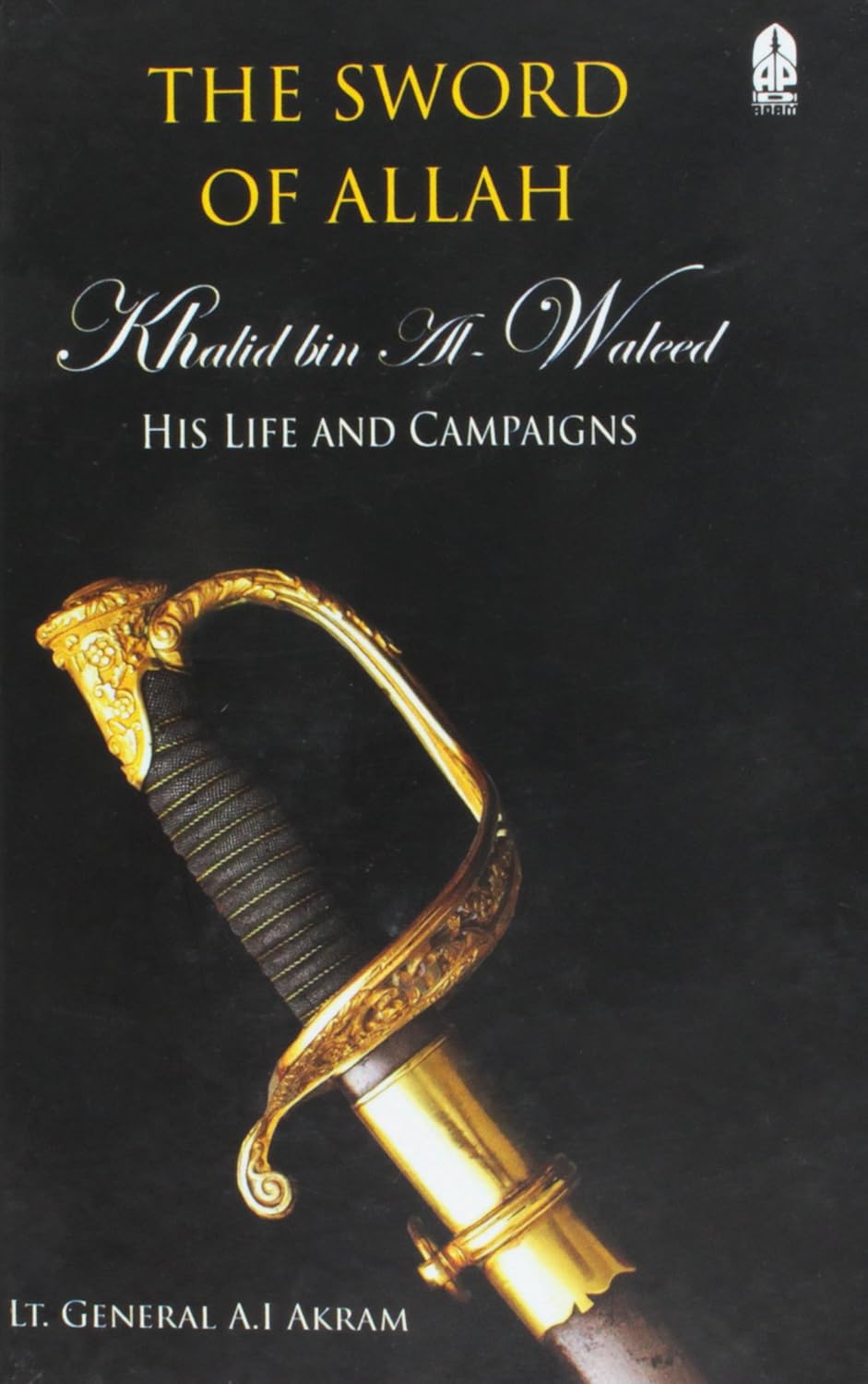About this deal
Islamic historiography describes Abu Bakr's efforts to establish or reestablish Islamic rule over the tribes as the Ridda wars (wars against the ' apostates'). Crone views the traditional reports as part of a general theme in the largely Iraq-based, Abbasid-era (post-750) sources to diminish the early Muslims' focus on Syria in favor of Iraq. A report preserved in a work by the 13th-century scholar Ibn Abi'l-Hadid claims that Khalid was a partisan of Abu Bakr, opposed Ali's candidacy, and declared that Abu Bakr was "not a man about whom one needs [to] enquire, and his character needs not be sounded out". Khalid encountered stiff resistance there by the tribesmen of the Namir, compelling him to besiege the town's fortress.
Khalid ibn al-Walid (ra): Becoming the Sword of Allah | The
The stretch of desert between Ayn al-Tamr and Palmyra is long enough to corroborate a six-day march and contains scarce watering points, though there are no placenames that can be interpreted as Quraqir or Suwa. His second book The Muslim Conquest of Persia was published after four years, after visiting the battlefields in Iran and discussions with Iranian scholars. After Muhammad's death, Khalid was appointed to Najd and al-Yamama with the purpose of suppressing or subjugating Arab tribes who were opposed to the nascent Muslim state; this campaign culminated in Khalid's victory over Arab rebel leaders Tulayha and Musaylima at the Battle of Buzakha in 632 and the Battle of Yamama in 633, respectively.No attending commanders voiced opposition, except for a Makhzumite who accused Umar of violating the military mandate given to Khalid by Muhammad. This clan bred and trained the horses on which the Quraish rode to war; it made arrangements for the preparation and provisioning of expeditions; and frequently it provided the officers to lead Quraish groups into battle. A single account in al-Baladhuri instead attributes Khalid's appointment to a consensus among the commanders already in Syria, though Athamina asserts "it is inconceivable that a man like [Amr ibn al-As] would agree" to such a decision voluntarily.
Khalid bin Al-Waleed: Sword of Allah - Goodreads Khalid bin Al-Waleed: Sword of Allah - Goodreads
His father, Al Waleed, was the Chief of the Bani Makhzum – one of the noblest clans of the Quraish – and was also known in Makkah by the title of AlWaheed- the Unique. He asserts it is "certain" Khalid embarked on the march, "a memorable feat of military endurance", and "his arrival in Syria was an important ingredient of the success of Muslim arms there". He later became a Muslim and spent the remainder of his career in service to Muhammad and the first two Rashidun caliphs: Abu Bakr and Umar. In the meantime, the other part of Khalid's army harried the villages in al-Hira's orbit, many of which were captured or capitulated on tributary terms with the Muslims.Khalid’s upbringing was now undertaken by the father who did his best (and with excellent success) to instil into Khalid all the virtues of Arab manhood-courage, fighting skill, toughness and generosity. The siege held amid a number of sorties by the Byzantine defenders and the city capitulated in the spring. Khalid's sacking did not elicit public backlash, possibly due to existing awareness in the Muslim polity of Umar's enmity toward Khalid, which prepared the public for his dismissal, or because of existing hostility toward the Makhzum in general as a result of their earlier opposition to Muhammad and the early Muslims. Due to the lack of leadership, Khalid stepped in to fill the gap and devised an ingenious plan to withdraw the Muslim army from this untenable position.
Khalid Bin Al-Waleed: Sword of Allah - Maktabah Publications Khalid Bin Al-Waleed: Sword of Allah - Maktabah Publications
Excluding the above-mentioned operations in Dumat al-Jandal and the upper Euphrates valley, the traditional accounts agree on only two events of Khalid's route to Syria after the departure from al-Hira: the desert march between Quraqir and Suwa, and a subsequent raid against the Bahra tribe at or near Suwa and operations which resulted in the submission of Palmyra; otherwise, they diverge in tracing Khalid's itinerary. We alighted at a camping-place along with Allah's Messenger (peace be upon him), and when the people began to pass he was asking, "Who is this, AbuHurayrah? The Namir were led by Hilal ibn Aqqa, a Christian chieftain allied with the Sasanians, who Khalid had crucified after defeating him. Khalid's eldest son was named Sulayman, hence his kunya (' paedonymic') Abu Sulayman ('father of Sulayman').There, Khalid attacked a group of Ghassanids celebrating Easter before he or his subordinate commanders raided the Ghouta agricultural belt around Damascus. Text is available under the Creative Commons Attribution-ShareAlike License and the GFDL; additional terms may apply. In June 631 Khalid was sent by Muhammad at the head of 480 men to invite the mixed Christian and polytheistic Balharith tribe of Najran to embrace Islam. I have fought in many battles seeking martyrdom that there is no spot on my body without a wound made from a sword, lance or arrow.
 Great Deal
Great Deal 